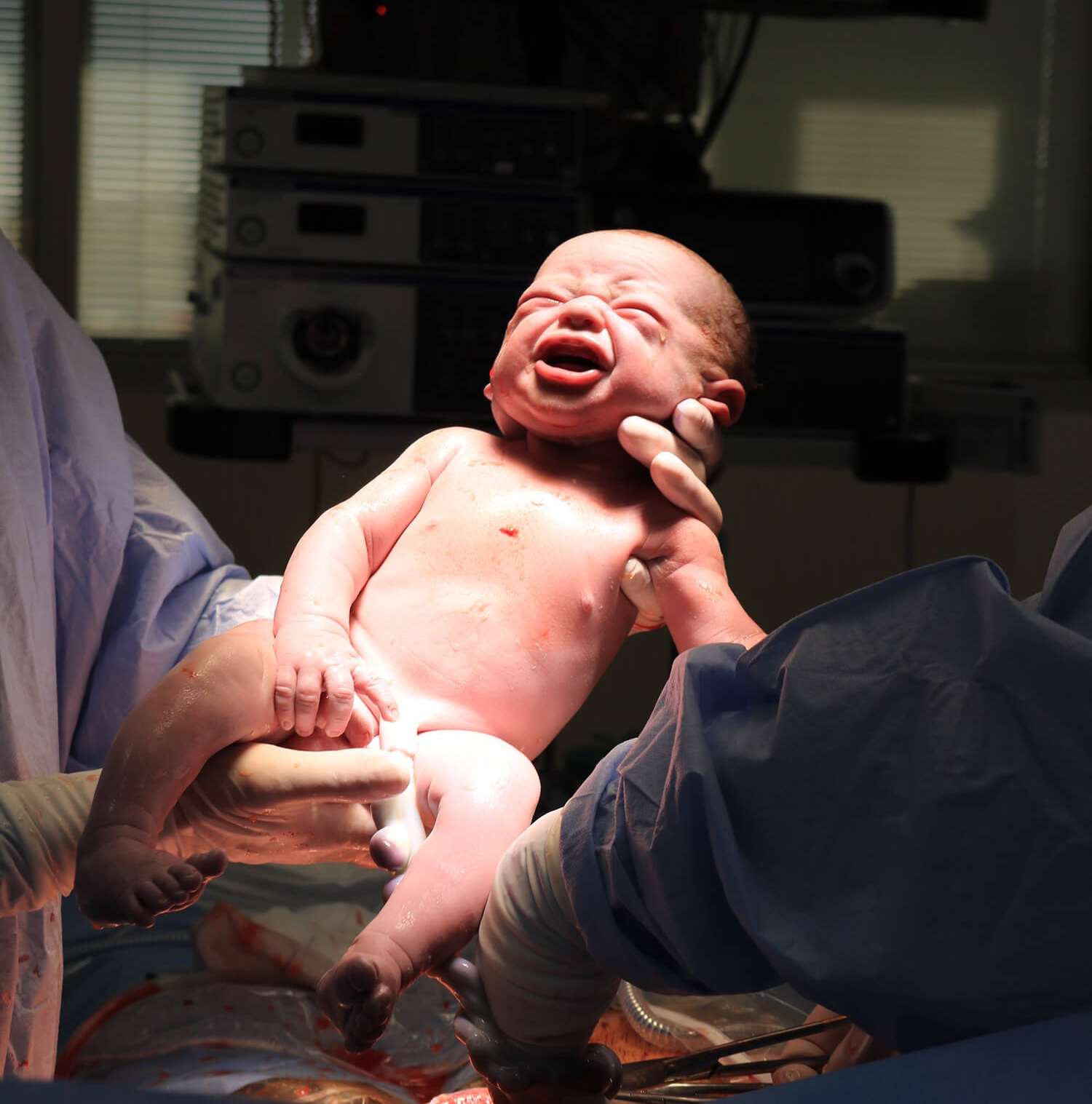Labour & Delivery
Labour & Delivery
You can be assured that your pregnancy will be closely monitored during your antenatal visits, and for the majority of couples, the pregnancy will be a smooth process culminating in the exciting birth of your baby. There are, however ,occasions when a complication may arise, and if this happens, it will be managed promptly and expertly.
The details of what to expect in normal labour are covered in detail during our ante-natal classes which is part of your obstetric care package.
Your baby’s birth
After what can sometimes seem forever, at around 40 weeks into your pregnancy, your labour will start.
Usually you will feel regular contractions and tightening in your abdomen, but sometimes you will notice a trickle or flow of fluid from your vagina.
Don’t worry. This is the time you should call the hospital midwives and let them know how you are.
If you notice bleeding like a period, or the fluid is green (mec, stained), give your Obstetrician a call.
When to go to the hospital
Your Obstetrician and midwife will give you advice when to come to the hospital, but usually, it will be when the contractions are 3-5 minutes apart.
When you arrive, and after an assessment from your midwife, your Obstetrician will come in to see you. We will carefully check the wellbeing of your baby, and make sure you are happy and comfortable.
After your arrival, we will make sure you and your baby are safe throughout your labour. There is always plenty of time to discuss options to ensure that you have a healthy baby, and your Obstetrician and midwife will give you their expert advice.
Your progress in labour
During your labour you will have constant support from your Hospital Midwife. She or he will carefully monitor your, and your baby’s wellbeing. Your Obstetrician will come in to see you every 4 hours or so, and immediately should you have any problems, and when the baby is close to birth.
It is likely that you will have a gentle internal examination at some stage during your labour as a way of checking your progress.
Our Hospital Birth Suites each have electronic monitoring equipment so that your baby can be monitored, and your Obstetrician can review this information remotely if needed.
Pain Relief in Labour
When you are considering a birth plan, you should also include your plan for pain relief. During your antenatal visits, your OGB Obstetrician and midwife will discuss your plans with you. Almost everyone uses some sort of pain relief, particularly in their first pregnancy. Women in labour usually start off with simple things, such as a warm shower, a TENS machine or massage. OGB Obstetricians have extensive experience in using Remifentanil patient controlled analgesia ( PCA) for women in labour. Remi has been used by OGB since 2014, and more than 2000 women have used it as pain relief in labour. Remi wears off very quickly, and is safe for your baby.
We work closely with Specialist Anaesthetists to look after you during complex births , and they are expert in providing epidural pain relief. Complications from epidurals are rare. If you wish to discuss epidural anaesthesia with an Anaesthetist before you are in labour, please mention this to your OGB Obstetrician. They will be happy to arrange a consultation.
Giving Birth
At the conclusion of your labour, you will give birth to your beautiful baby. The pushing stage of labour can sometimes be quite quick, but it may take up to two hours in the “second stage” for some people, particularly if this is your first baby.
Your midwife will be in close contact with your OGB Obstetrician, and will support you during this time. Near the time you are going to give birth, your Obstetrician will attend to provide additional support and expertise to ensure the birth is safe and calm.
After the Birth
As soon as your baby is born, he or she will be placed on your abdomen for you to hold and get to know. If your baby is unwell, a Paediatrician will come to look at him or her. Almost always, with expert care, your baby will be fine, so don’t worry.
Once all the photos and phone calls are made, you will be helped to breast feed as soon as possible.
During your postnatal stay, which is about 3 days, your OGB Obstetrician will see you daily.
In some situations, you may need assistance to give birth. If this is necessary, be confident that your OGB Obstetrician is skilled to safely care for you and your baby.
From then on, we will coordinate regular supervision of breast feeding with qualified lactation consultants, midwifery postnatal care, help and guidance with mother care and physiotherapy and recovery exercises. We have close involvement with Raphael House Support Network and if needed can involve a psychologist and further support if required.
Our aim is to ensure that you are not discharged until you and your partner feel ready to care for your baby, and we will provide 24-hour support from when you are discharged, whether it be over the phone, or review at the hospital, as well as follow up one-on-one lactation support from one of our OGB lactation consultants.
Ballarat
1105 Howitt Street
Wendouree Victoria
3355 Australia
Surf Coast
Epworth Geelong
1 Epworth Place, Waurn Ponds
3216 Australia
Abbreviations have been used throughout this website. Please refer to the glossary for full terminology.
All Rights Reserved | OGB
site by mulcahy & co marketing
